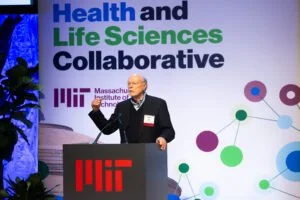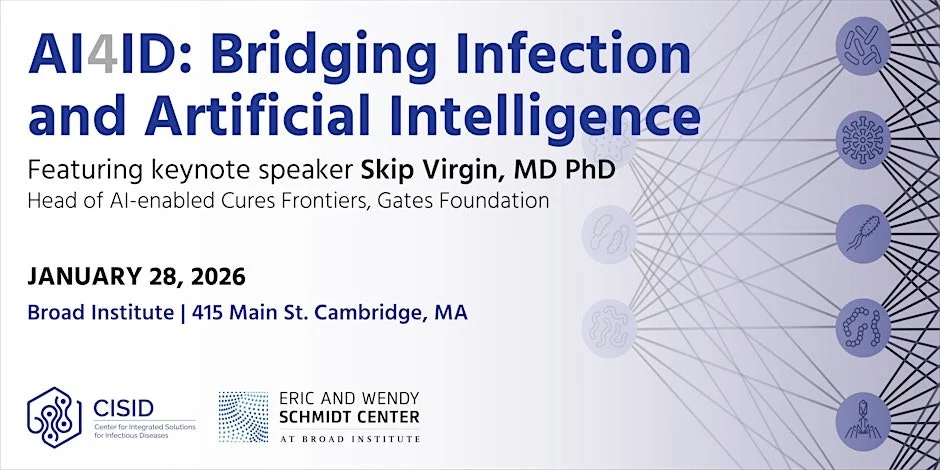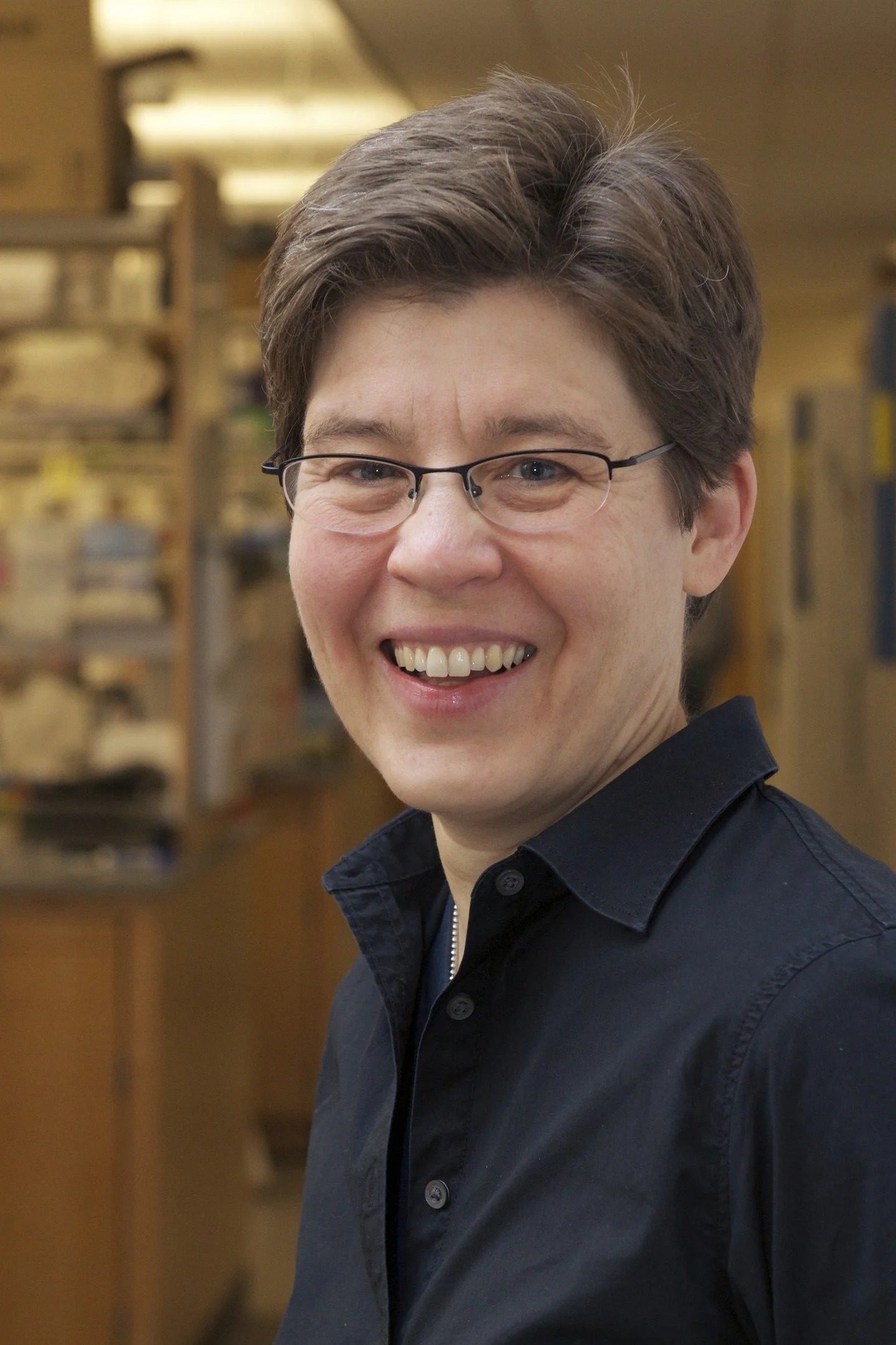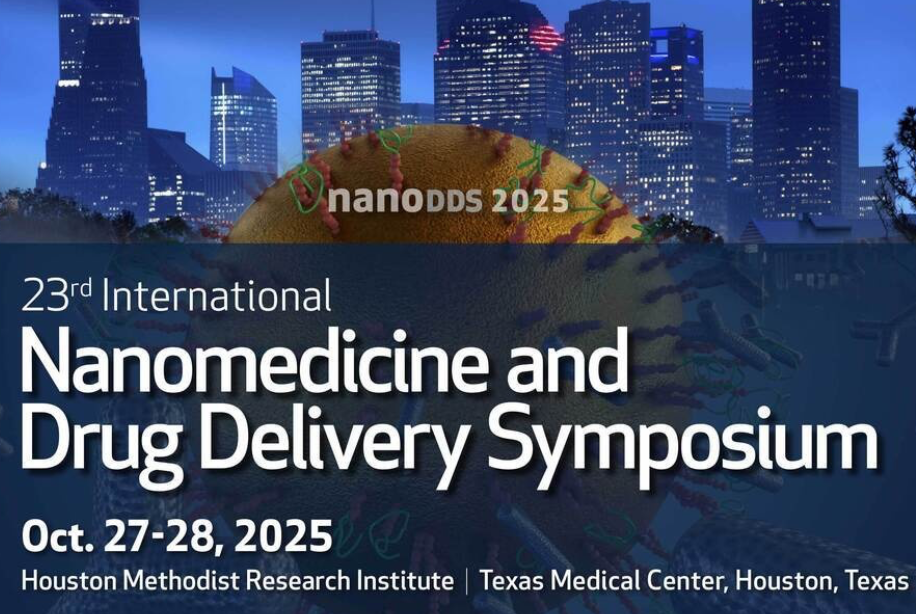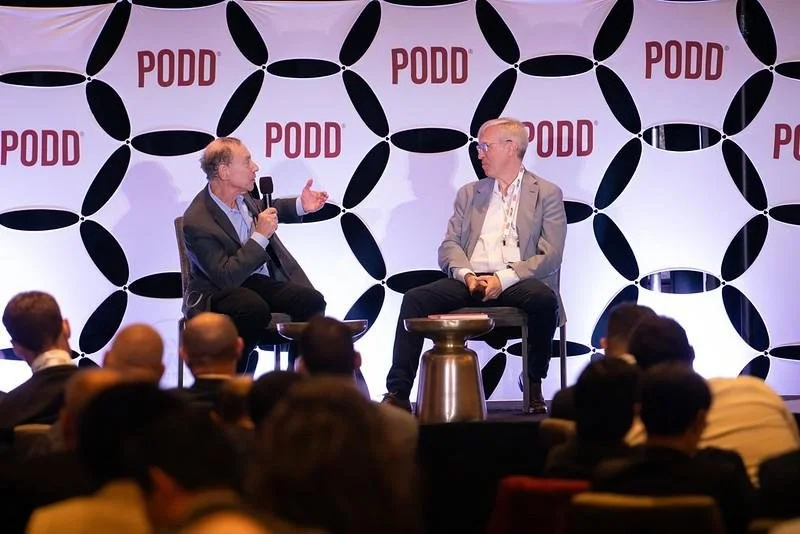
Events
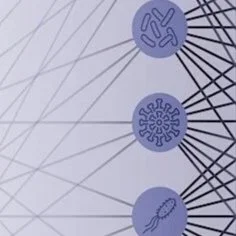
AI4ID: Bridging Infection and Artificial Intelligence
Bridging Infection and Artificial Intelligence
The AI4ID symposium will convene a dynamic mix of leading experts in infectious diseases and artificial intelligence, fostering a unique environment for creative, cross-disciplinary collaboration. The central goal is to think creatively about how cutting-edge AI technologies can be harnessed to solve the most pressing challenges in infection research. This year's symposium will be structured across three key sessions: AI at the clinical interface, AI for biological discovery, and AI for therapeutic discovery.
This inaugural symposium is jointly hosted by the Center for Integrated Solutions for Infectious Diseases and the Eric and Wendy Schmidt Center and will be in-person only at the Broad Institute in Cambridge, MA.
Registration deadline: Tuesday, January 6, 2026
Pre-symposium Primers
We are hosting two pre-symposium primers on Tuesday, January 27th, AI101 and ID101, to facilitate understanding, discussions and collaborations at the symposium. Details for coming soon.
Please use this form to submit abstracts for a poster presentation. Abstracts will be evaluated on a rolling basis. Presenters will be notified of selection by January 6, 2026.
If you submit an abstract, be sure to also register for the symposium using this Eventbrite page.
Contact
If you have any questions, please contact cisid@broadinstitute.org or ericandwendyschmidtcenter@broadinstitute.org
Organizing Committee
Deborah Hung, Caroline Uhler, Orr Ashenberg, Ishay Ben-Zion, Suus Bergenhenegouwen, Lisa Cosimi, Yasha Ektefai, Michael Farzan, Jorge Fortin, Yonatan Grad, Sam Hwang, Roy Kishony, Herui Liao, Tami Lieberman, Jonathan Livny, Samantha Miranda, Joshua Pickard, Chris Smillie, Paul Tyman, Sharon Wong
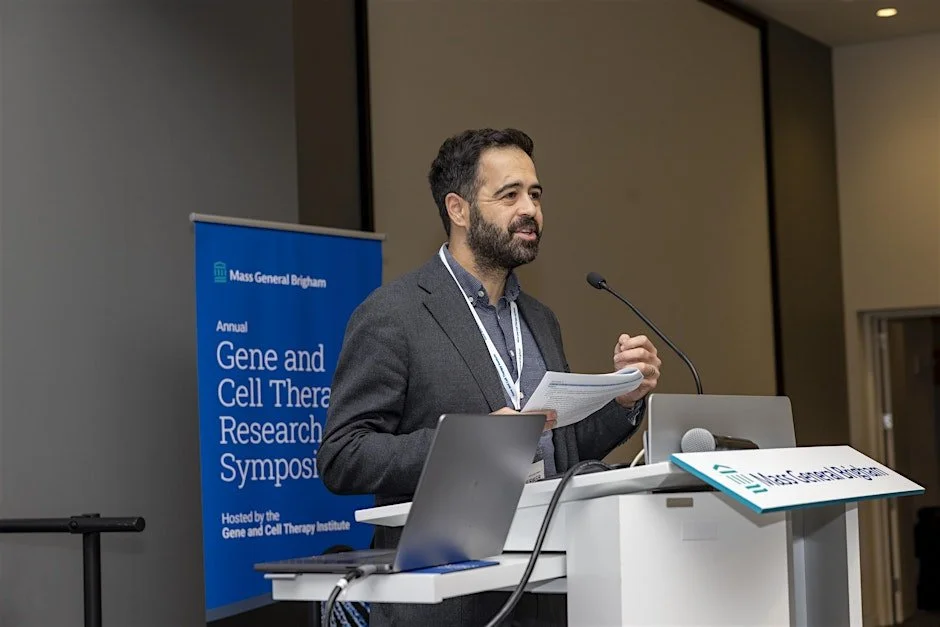
MGB Gene and Cell Therapy Institute Third Annual Symposium
Uniting Gene and Cell Therapy Experts
December 11, 2025
The Gene and Cell Therapy Institute (GCTI)'s annual research symposium stands as a global hub, drawing in esteemed researchers, accomplished scientists, and industry professionals from across the globe. Together, they share a common goal of disseminating knowledge, unveiling cutting-edge breakthroughs, and envisioning the transformative potential within the realm of gene and cell therapy.
What sets the symposium apart is its commitment to cultivating a unique and collaborative environment. The 2025 event (December 11-12) will feature keynote speakers Carl H. June, MD and David R. Liu, PhD and engaging discussions by leading pioneers in gene and cell therapy research, as well as plentiful opportunities for networking and collaboration among attendees.

The 2025 Hockfield Cancer Research Prize
The 2025 Hockfield Cancer Research Prize
IN CELEBRATION OF THE LIFE AND LEGACY OF DAVID BALTIMORE
WEDNESDAY, DECEMBER 10, 2025
Cambridge, Massachusetts
Memorial Program
2:00-3:30 PM
Broad Institute, Merkin Building
415 Main Street
Refreshments to follow in the Broad Institute lobby.
Memorial Dinner and Presentation of the Susan Hockfield Cancer Research Prize
4:30-7:00 PM
4:30 PM Welcome Reception
5:00 PM Dinner and Program
Koch Institute for Integrative Cancer Research
Luria Auditorium
500 Main Street

MIT Science Policy Review Roundtable
In Science Policy Roundtable #3, we convene distinguished leaders from both U.S. and international governments to examine the evolving role of the state in shaping national science and technology enterprises. This talk will offer a unique comparative perspective as we draw on Dr. Kreibich’s extensive diplomatic experience within Germany’s Federal Foreign Office and the German Missions to the United States, Mr. Koizumi’s tenure as Assistant Director for Federal R&D at the White House Office of Science and Technology Policy, as well as Dr. Fadel’s background across government, industry, foundations, and academia. Together, our speakers will explore topics such as federal funding mechanisms for public research, the role of diplomatic missions in advancing national technology priorities, and how leading technology nations design and implement their R&D strategies.
Date: December 5 (Friday), 12-1:30pm
Location: in-person at MIT, announced after RSVP;
Lunch will be provided for in-person participants. We will consider a Zoom/virtual option given sufficient interest.
Sign-up Form: https://forms.gle/UqZgmMUyDDuUYp1q8
Speakers:
Speakers (See detailed bio attached):
Dr. Sonja Kreibich, Consul General of the Federal republic of Germany to the New England States
Kei Koizumi, former Principal Deputy Director for Science, Society, and Policy, White House Office of Science and Technology Policy
Moderator: Dr. Tarek Fadel, Director of Strategic Alliances at Koch Institute for Integrative Cancer Research at MIT

34th Annual Irwin M. Arias Symposium
34th Annual Irwin M. Arias Symposium
The first Irwin M. Arias, M.D. Symposium was held in 1991, and the theme of the event was – as it remains today – Bridging Basic Science and Liver Disease.
This unique one-day program brings together hundreds of leading biomedical scientists and physicians from across the globe and is designed to bridge the remarkable advances in basic biology and engineering with the understanding of liver diseases and their treatment. Research presented over the past 34 years has led to advances in the diagnosis and treatment of virtually all liver diseases in children and adults.
With plenary talks from renowned researchers and a collection of three-minute micro talks delivered by trainee scientists, the Arias Symposium is a model in ‘bridging’ between the academic, industrial, and clinical research communities – even across disciplines.
The 2025 symposium will be offered both in-person and virtually. In-person attendees will benefit from a poster session and networking opportunities with plenary speakers and other attendees. Breakfast, lunch, and a networking reception will also be provided to in-person attendees.
We welcome participation from researchers at every stage of their careers, and invite them to share perspectives from their academic, industrial, and clinical research settings. Trainees who are interested in presenting a micro-talk (in-person or virtually) or poster (in-person only) should submit an abstract with their registration. The deadline to submit an abstract is October 31, 2025.
For queries related to Arias Symposium corporate sponsorship, please contact Heidi Daniels, HDaniels@liverfoundation.org.

18th Annual BIDMC Cancer Center Symposium
18th Annual BIDMC Cancer Center Symposium
Please join us for the 18th Annual BIDMC Cancer Center Symposium on Friday, November 21st, 2025 from 9 AM - 5 PM. Participate in a day of innovation, collaboration, and inspiration as we explore this year’s theme: Arc of Progress—From Scientific Discovery to Patient-Centered Care. The program will feature keynote speakers, expert panel discussions, and presentations showcasing cutting-edge research and advances in cancer care. Attendees will have the opportunity to connect with clinicians, researchers, and community partners dedicated to shaping the future of cancer therapeutics, immuno-oncology, and more.
For the first time, this year's Symposium will include a poster session showcasing emerging trends across the cancer research landscape. Breakfast, lunch, and refreshments will be served. Complimentary cocktail hour will begin at 4 PM. The symposium will be in-person at the Harvard Medical School Joseph B Martin Conference Center.
For questions, please contact BIDMC-CancerCenter@bidmc.harvard.edu.

Health Sciences & Semiconductors: Shaping the Future of Personalized Healthcare.
Step into the future of healthcare, where the brightest minds from MIT, imec, and across the innovation ecosystem unite to accelerate progress in medicine and human health. This event brings together visionaries, clinicians, researchers, and venture leaders for a day of transformative ideas, actionable insights, and powerful connections.
Experience a program packed with thought-provoking keynotes, interactive panels, and rapid-fire project pitches. Dive deep into the translation pathway—from groundbreaking research to commercialization and clinical deployment—and discover how public funding, venturing, AI and patient-focused implementation are shaping the next era of personalized healthcare.
Who should attend
Faculty and researchers; clinical and hospital innovation leaders; industry R&D and partnership leads; investors and venture builders; federal, state, and nonprofit funders.
Why attend
See the whole translation pathway - from publicly funded research to commercialization and clinical deployment. Panels span venturing, AI and patient‑focused implementation.
Spot emerging opportunities - short lightning talks from pioneering projects showcase where collaboration can drive rapid progress.
Agenda at-a-glance
9:30 AM: Arrival & Registration
10:00 AM – 12 PM
Welcome & Introduction by MIT and imec
Hear from world-leading clinicians in keynote and panel discussions
12:00 PM: Networking Lunch
1:00 – 3:30 PM
Panel discussions focused on creating impact by venturing pathways from R&D to commercialization
3:30 PM: Coffee Break
3:30-5:00 PM
Lightning Talks and pitches from pioneering projects, plus learn about advancements in AI for health devices
Concluding Remarks

NSF I-Corps + Koch Institute: AI and Cancer Care
NSF I-Corps Short Course: AI + Cancer Care
Explore how your research can transform the fight against cancer
DEADLINE IS NOV 3rd (LIMITED CAPACITY, FIRST COME , FIRST SERVE)
AI/ML powered research areas may include: Generative Biology, Bioanalytical Pipelines, Therapeutic Manufacturing, Nanoparticle & RNA Design, Patient Matching & Digital Biomarkers, Imaging, Digital Twins and Predictive Toxicology.
How it works:
The interactive course begins with a virtual evening kickoff workshop where teams learn how to:
Identify their top customer segments
Develop hypotheses about the value proposition they offer each segment
Find and effectively interview potential customers about their problems/needs Over the next four weeks, teams will speak with at least 12 potential customers.
We will host two practitioner’s panels, one with industry leaders and other with peers who are in the process of commercializing technologies.
The program wraps-up with a final virtual evening workshop where teams present their findings, get more coaching, and learn about progressing their ideas

2025 Mildred S. Dresselhaus Lecturer: Dr. Jennifer Lewis, Harvard University
The Mildred S. Dresselhaus Lecture Series
The Dresselhaus Lecture series is named in honor of Mildred "Millie" Dresselhaus, a beloved MIT professor whose research helped unlock the mysteries of carbon, the most fundamental of organic elements—earning her the nickname “queen of carbon science.” This annual event recognizes a significant figure in science and engineering from anywhere in the world whose leadership and impact echo Millie’s life, accomplishments, and values.
Jennifer Lewis
Jianmin Yu Professor of Arts and Sciences, and the Wyss Professor for Biologically Inspired Engineering, Paulson School of Engineering and Applied Sciences, Harvard University
DATE: Monday, November 3, 2025
TIME: 4:00 p.m. – 5:00 p.m. ET, reception to follow
LOCATION: MIT Building 10 Room 250
ABOUT JENNIFER LEWIS
Jennifer A. Lewis is the Jianmin Yu Professor of Arts and Sciences, the Wyss Professor for Biologically Inspired Engineering in the Paulson School of Engineering and Applied Sciences, a core faculty member of the Wyss Institute, Bioengineering Chair, and MRSEC Director at Harvard University. Her research focuses on the digital manufacturing of functional, structural, and biological materials. Multiple startups are commercializing technology from her lab ranging from 3D printed electronics to kidney therapeutics. She is an elected member of the National Academy of Sciences, National Academy of Engineering, National Academy of Inventors, and the American Academy of Arts and Sciences. Lewis has received numerous awards for her work, including the NAS James Prize for Science and Technology Integration.

Current State of Nanomedicine Drug Products: An Industry Perspective
Chair(s): Mitra Mosharraf
Speaker(s): Patrick Lim Soo, Jeffrey Clogston
This webinar is a joint collaboration with the International Consortium for Innovation and Quality in Pharmaceutical Development (About Us) and specifically with the IQ Consortium Nanomaterial and Nanotechnology Working Group. The consortium is made up of 50+ member companies and their employees.
Nanomedicine drug products have reached an unprecedented high in terms of global commercial acceptance and media exposure with the approvals of the mRNA COVID-19 vaccines in 2021. We examine the current state of the art for nanomedicine technologies as applied for pharmaceutical products and compare those with industry trends. We find that 1) industry companies continue to push the envelope in terms of new technologies for characterizing their specific drug products, 2) new analytical technologies continue to be utilized by industry to characterize the increasingly complex nanomedicine drug products and 3) alignment and communication are key between industry and regulatory authorities to better understand the regulatory filings that are being submitted. There are many CMC challenges that a company must overcome to successfully file a nanomedicine drug product. We propose a complimentary guide providing knowledge on specific CMC issues such as quality attributes, physicochemical characterization methods, excipients, and stability.

Nanomedicine & Drug Delivery Symposium (NanoDDS 2025)
Nanomedicine & Drug Delivery Symposium (NanoDDS 2025)
Nanomedicine & Drug Delivery Symposium (NanoDDS 2025) will take place on October 27–28, 2025, at the Houston Methodist Research Institute in the Texas Medical Center, Houston, Texas and is co-chaired this year by Dr. Biana Godin, Dr. Francesca Taraballi and Dr. Alessandro Grattoni. NanoDDS is the first and one of the most important conferences in nanomedicine. Established over twenty years ago by Drs. Kabanov and Kataoka, it continues to be a premier forum for showcasing cutting-edge research and emerging technologies in drug delivery systems.
Building on its strong legacy, NanoDDS 2025 will bring together a multidisciplinary community of global experts, scientists, clinicians, and industry partners to foster collaboration and highlight the significant advancements in nanomedicine and drug delivery systems. This conference follows Houston Methodist’s tradition of hosting prestigious, highly visible symposia.
The objectives of the Nanomedicine and Drug Delivery Symposium are to discuss groundbreaking discoveries and developments in nanomedicine and drug/nucleic acid delivery; highlight clinical developments and opportunities for advancing nanomedicine technology to the marketplace; and engage and educate students, postdoctoral trainees and scientists locally, nationally and globally.
Co-sponsored by The George and Angelina Kostas Research Center for Cardiovascular Nanomedicine

2025 Partnerships Opportunities in Drug Delivery Conference
Covering Cutting-Edge Scientific and Business Trends in Drug Delivery
Date: Oct 27, 2025 - Oct 28, 2025 | Venue: Westin Copley Place | Location: Boston, MA
Pharma, biotech and drug delivery industries will gather at the 15th annual PODD event to assess delivery needs, explore partnership opportunities, and stay at the forefront of innovative drug delivery technologies. This includes small molecules, biologics, combination products, connected devices, cell and gene delivery and more.
PODD provides partnering opportunities through organized networking for new, emerging and established collaborations.
2025 Topics
Partnering to Advance Drug Delivery Innovation
Payer Perspectives on Drug Delivery
Beyond LNPs: Delivering Genetic Medicines with Novel Vehicles
Advances and Opportunities in Dual Chamber Injectables
Platform Approaches to Streamline Combination Product Development
Novel Approaches to Achieve Tissue-Specific Targeting for Nucleic Acid Therapeutics
Advances in ADCs, Drug Conjugation and Bioconjugation
Achieving Effective Manufacturing Scaleup for Clinical and Commercial Success
Ensuring Sustainability Throughout Drug and Device Development
Novel Formulation Approaches for Oral Delivery
Physical and Formulation Approaches for CNS Delivery
Respiratory Devices and Inhaled Biologics
Digital Technologies to Enhance Patient Experience and Better Manage Supply Chain
Challenges and Opportunities in Delivering Hyperconcentrated Formulations
Novel Approaches to Deliver Large Volume Therapies
And More

Cytiva PRIME Summit 2025
PRIME Summit 2025
13-16 October, 2025
Renaissance Boston Seaport Hotel | Boston, MA
Connect with a global community of purification researchers to explore the latest in protein purification, automation, mRNA, funding strategies, and drug discovery. Let’s push the boundaries of molecular science together.
What is PRIME summit?
A four-day summit with emphasis on innovation, discovery, and collaboration in purification research.
Day 1: Behind the Cytiva curtain:
- Tour of the Cytiva Boston site
- Learn more about FastTrak™ facilityDay 2: Innovate:
- Presentation from global speakers, emphasis on innovative research and processes
- Networking in poster sessions
- Workshop rotations with Cytiva expertsDay 3: Discover:
- Presentation from global speakers, emphasis on optimization and automation
- Networking in poster sessions
- Workshop rotations with Cytiva expertsDay 4: Collaborate:
- Poster winner presentations
- Lunch send-off
Why attend PRIME Summit?
Be part of history by attending the inaugural PRIME Summit and contribute to its success
Gain insights from expert speakers in the field of protein research
Participate in hands-on sessions and tutorials with ÄKTA™, Biacore™, and Imaging systems
Connect with a global community within academia and biotech professionals
Take advantage of the unique opportunity to tour the Cytiva Boston site and see the latest systems in action

The 2025 Nano Summit
Celebrating the Impact of Nanoscience and Nanotechnology!
The Nano Summit is MIT.nano's flagship conference, showcasing groundbreaking advancements in nanoscience and nanotechnology. The conference is ideal for researchers, industry professionals, entrepreneurs, and students interested in the latest developments in cutting-edge research, emerging technologies, and real-world applications.
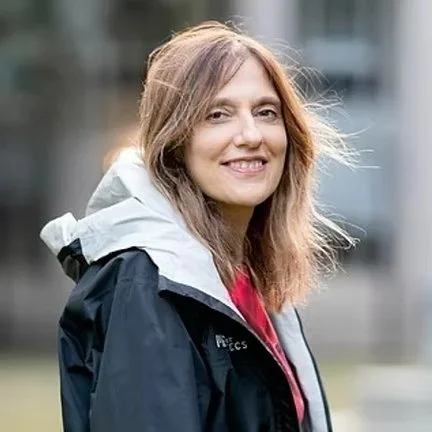
Intro to Generative AI
The potential of AI to transform health care — through the work of both organizational leaders and medical professionals — is increasingly evident as more real-world clinical applications emerge.
In this accessible and clinician-focused tutorial, MIT Professor Regina Barzilay introduces the fundamentals of generative AI and its transformative applications in healthcare. Designed for healthcare professionals with no prior technical background, this session breaks down how models like ChatGPT and other large language models (LLMs) work, what they can (and can’t) do, and how they are already being used in clinical practice, from drafting patient notes to supporting clinical decision-making.
Participants will learn:
Core concepts behind generative AI and LLMs
Examples of real-world use cases in clinical settings
Opportunities and limitations of these tools in daily practice
How to critically evaluate AI-generated output
Ethical considerations and potential challenges in medical applications
Whether you're curious about AI's potential or looking to responsibly integrate it into your work, this session offers a practical, clinician-oriented overview to help you engage with these emerging tools confidently and thoughtfully.
Time & Location
Sep 22, 2025, 8:00 AM – 9:00 AM
Cambridge, 50 Memorial Dr, Cambridge, MA 02142, USA
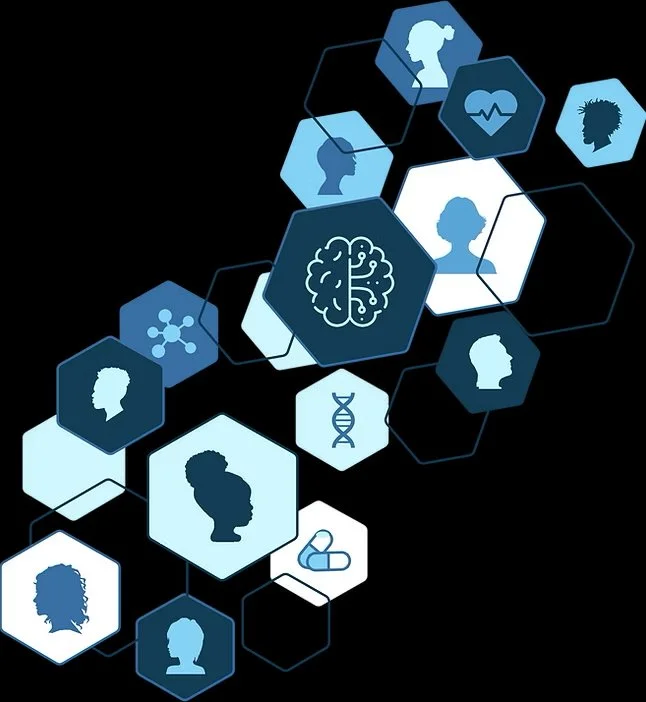
2025 MIT MGB AI Cures Conference
AI has transformed many areas of life in the last decade, yet the impact of these technologies on patient care is still limited. Building on the combined expertise of MIT and MGB in AI and clinical practice, the MIT-MGB AI Cures Conference showcases ongoing collaborative projects in clinical AI, highlighting cutting-edge research and their impact on patient care. Equally important is the process for collecting the data required to train clinical AI algorithms, with a focus on privacy, diversity, and quality. Our sincere hope is that this conference will help foster new MIT-MGB collaborations and inform the public about our collective efforts to improve patient care.
2025 Agenda
8:00AM
Pre-Conference Tutorial: Intro to Generative AI for Healthcare
Subject to fee | Register now
Regina Barzilay (MIT)
8:30AM
Breakfast & Check-In
9:00AM
Opening Remarks
Sally Kornbluth, President (MIT)
Anne Klibanski, CEO and President (MGB)
9:15AM
Keynote
John Halamka, President (Mayo Clinic Platform)
10:00AM
Break
10:15AM
Session I: How Can AI Transform Healthcare? Real-World Examples
Natalia Rost (MGB)
Bharti Khurana (MGB)
Elazer Edelman (MIT)
Dina Katabi (MIT)
11:15AM
Playbook for Implementing AI in Clinical Care (SYBIL)
Lecia Sequist, Workshop Chair (MGB)
Raymond Osarogiagbon (Baptist Memorial Healthcare)
William Mayfield (WellStar Health System)
Mary Pasquinelli (UI Health)
12:15PM
Lunch & Poster Presentations
1:20PM
Optimizing AI Development with Data and Intellectual Sharing
Shawn Murphy (MGB)
1:25PM
RFP Announcement & Closing Remarks
Paul Anderson (MGB)
Regina Barzilay (MIT)

MIT Hacking Medicine BioxAI Pitch Event 2025
Please visit the following page for the most up-to-date information: https://www.nanomedicine.mit.edu/bioxai2025
Join fellow life science, computer science, engineering, and medical grad students and postdocs for a cross-school, cross discipline evening of BIOxAI community and informal pitch sharing hosted by MIT Hacking Medicine, the MIT Koch Institute, and the MIT Computer Science & Artificial Intelligence Lab.
Pitch your research or startup idea, meet with NSF and industry startup supporters, talk to founders about their lab to market journey, and learn about resources to help you get started and funded – or just come and pitch yourself as a candidate to join a team or serve as a co-founder. Then stay for the reception and dinner.
This is the event for you if you are interested in:
Learning about BIOxAI research to startup pathways
Pitching your BIOxAI idea or yourself (max 2 min)
Recruiting high impact team members or a co-founder
Joining an informal cross-discipline reception
Attendance is limited with a preference for those pitching their AIxBIO ideas, startups, team needs, or themselves.
Please apply if you are interested in attending, pitching, or both! Applications will close at 5 PM on September 10th, 2025.
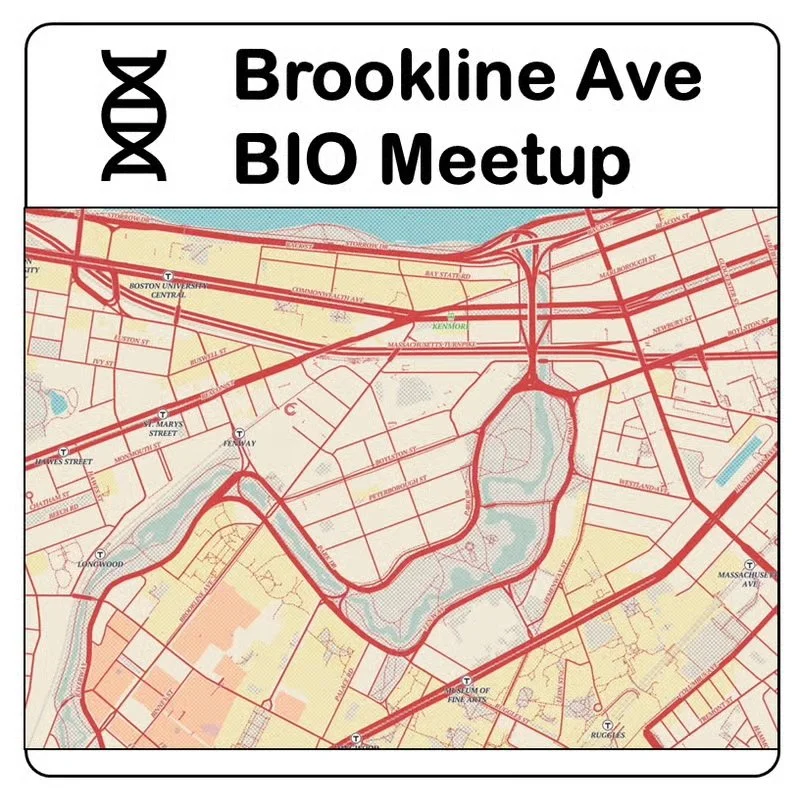
Brookline Ave BIO Meetup - Summer 2025
This is the second edition of the Brookline Ave BIO Meetup. At the first meetup, we had about 100 people - a good mix of academics and industry folks and everyone from grad students to CEOs. We had a nice showing from the local Fenway biotech and investor crowd and people from all over the Longwood Medical Area (BIDMC, HMS, DFCI, BCH, Joslin, Wyss, BU, and BWH).
Come out to talk about science, medicine, business, entrepreneurship, collaboration, and the like. This is an informal event so just show up and introduce yourself. I'll likely have name tags but no other official programming.
The event is not sponsored - you are responsible for buying your own drinks and you can get food from Time Out if you like.
Target Audience:
Academic researchers and clinicians
Biopharma
Tech Transfer
Investors, lawyers, business people
Anyone interested in commercializing science or related topics
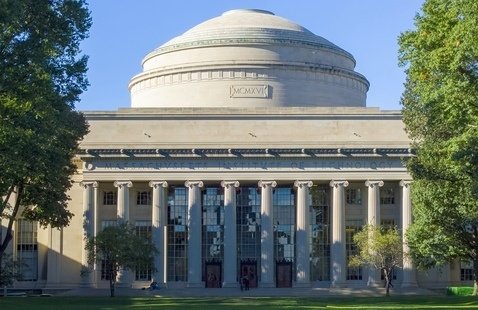
Faculty Job Search Series: STEM Research Statements Faculty Panel
Faculty Job Search Series: STEM Research Statements Faculty Panel
By Career Advising & Professional Development (CAPD)
What makes a STEM research statement successful? Hear from recent MIT alumni and current MIT faculty about their experiences writing research statements and/or evaluating them as members of a search committee. Get an expert perspective on mistakes to avoid, where to focus, and what you can leave out. For those on the faculty job search, this panel will be particularly useful as you prepare and refine your application materials. Open to MIT graduate students, postdocs and alumni.
Registration for this event is required via Handshake.
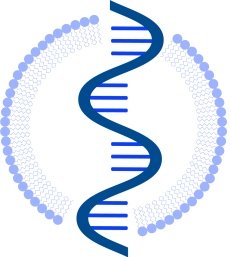
mRNA-based Therapeutic Summit
The mRNA field is on the cusp of revolutionary change, with cancer vaccines, in vivo cell engineering and gene editing technologies unleashing the next advancements of therapeutic candidates and developmental progress towards clinical and commercial approval.
To shine light on emerging areas and the latest progress, the 5th mRNA-Based Therapeutics Summit returns to Boston as the world's largest, end-to-end mRNA conference, gathering 320+ global stakeholders, sharing exclusive scientific and strategic insights from the biggest and newest players in the mRNA, Circular RNA & Self-Amplifying RNA fields including Moderna, Pfizer, BioNTech, Grann Pharmaceuticals, Celestial Therapeutics, Byterna Therapeutics and more.
Discover the realms of new infectious disease platforms, combating oncological targets and cell therapies across 4 dedicated tracks of content in Discovery, Pre-Clinical Development, Clinical Development and, Manufacturing & CMC as your one-stop-shop scientific content and partnering forum to aid the progress of pipelines in 2025 towards the clinic and ultimately patients in need.

Neuroblox Invited Talks & Discussions: New Ideas in Translational Neuroscience
Neuroblox Invited Talks & Discussions: New Ideas in Translational Neuroscience
32 VASSAR ST, Cambridge, MA 02139
9:00 am
Michael Breakspear, M.D. Ph.D.
Neural field models suggest shared dynamics in brain and generative AI
10:00 am
Current status of methods for examining the impact of pharmacologic interventions on brain function
11:00 am
Towards developing a combined metabolic/neurotransmitter model for understanding the relationship between glutamate and GABA neurotransmitter fluxes and neuromodulator dopamine activity
12:00 pm
Linking levels of analysis from brain to behavior in computational modeling

Annual Koch Institute Symposium: Antibody Drug Conjugates: Targeted Cancer Therapies at the Intersection of Chemistry, Biology, and Engineering
Antibody Drug Conjugates: Targeted Cancer Therapies at the Intersection of Chemistry, Biology, and Engineering
The 23rd Annual Koch Institute Symposium on Antibody Drug Conjugates: Targeted Cancer Therapies at the Intersection of Chemistry, Biology, and Engineering will take place on Friday, June 27, 2025. We cordially invite scientists, oncologists, and any other member of the biomedical community to join us in a day of engaging talks, stimulating conversations with colleagues, and of course camaraderie in our collective fight against cancer.
Agenda
9:00 a.m. - 9:10 a.m. Opening remarks
Matthew Vander Heiden
Director, MIT Koch Institute
9:10 a.m. – 10:00 a.m. Keynote
Introduction: Jessica Stark, MIT Koch Institute
Carolyn Bertozzi
Stanford University
Topic: Antibody drug conjugate biological chemistry
10:00 a.m. – 12:00 pmSession One
Peter Senter
Pfizer
Topic: Antibody drug conjugate history
Gerold Meinhardt
Daiichi Sankyo
Topic: Enhertu
Alison Betts
Takeda Pharmaceuticals
Topic: Antibody drug conjugate quantitative systems pharmacology
Tim Lowinger
Mersana Therapeutics
Topic: Immunostimulatory antibody drug conjugates
12:00 p.m. – 1:30 p.m.Lunch Break
1:30 p.m. – 2:30 p.m.Session Two: Short Presentations
Laurie Boyer
MIT Koch Institute
Topic: Lysosome morphology as predictor of drug efficacy
Dane Wittrup
MIT Koch Institute
Topic: Noncovalent capture antibody drug conjugates
Jeremiah Johnson
MIT Koch Institute
Topic: Antibody-polymer conjugates
Dasa Lipovsek
Aktis Oncology
Topic: Radioligand therapy
2:30 p.m. – 4:30 p.m.Session Three
Greg Thurber
University of Michigan
Topic: Strategies for uniform antibody drug conjugate penetration
Puja Sapra
AstraZeneca
Topic: Antibody drug conjugate payloads and linker chemistry

Gordon Research Conference on Cancer Nanotechnology
Cancer Nanotechnology
Gordon Research Conference
Nanoscale Discoveries to Transform Clinical Outcomes
June 15 - 20, 2025
The Cancer Nanotechnology GRC is a premier, international scientific conference focused on advancing the frontiers of science through the presentation of cutting-edge and unpublished research, prioritizing time for discussion after each talk and fostering informal interactions among scientists of all career stages. The conference program includes a diverse range of speakers and discussion leaders from institutions and organizations worldwide, concentrating on the latest developments in the field. The conference is five days long and held in a remote location to increase the sense of camaraderie and create scientific communities, with lasting collaborations and friendships. In addition to premier talks, the conference has designated time for poster sessions from individuals of all career stages, and afternoon free time and communal meals allow for informal networking opportunities with leaders in the field.
Cancer nanotechnology is the engineering of nanoscale materials that aim to revolutionize the diagnosis, treatment, prevention, and study of cancer. Since its inception, cancer nanotechnology research has produced multiple diagnostics and therapies that are making an impact on patients. The 2025 Cancer Nanotechnology GRC will discuss current efforts to produce personalized nanomedicines, immunotherapeutic nanoparticles, diagnostic imaging and sensing platforms, and research tools, to further improve patient outcomes.

2025 Marble Center poster symposium
2025 Marble Center poster symposium
Tuesday May 20th , Luria Auditorium
The poster symposium will convene members of the Koch Institute for Integrative Cancer Research and broader MIT community working on nano- and precision based approaches for the early detection and treatment of cancer. The event will be held at the Koch Institute Luria Auditorium on May 20, 3:30-5:30pm. This will be an in-person only event, and will be an excellent opportunity to highlight collaborative projects in this area and get feedback from faculty and industry members.
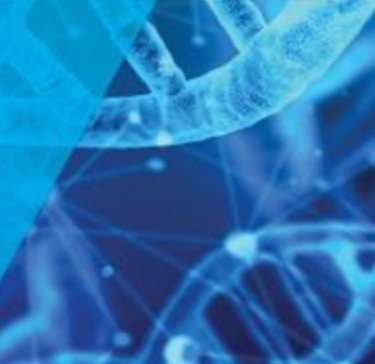

The 2025 Judith Ann Lippard Memorial Lecture
Rebecca Stone has been selected as the recipient of the 2025 Judith Ann Lippard Memorial Lectureship. She will present her lecture, The Science Fiction of Ovarian Cancer: What We Got Wrong--and Why It Matters, to the MIT and Koch Institute communities in the Luria Auditorium (76-156) on Thursday, April 10, 2025 at 12:00-1:30 p.m.
Dr. Stone is associate professor and director of gynecologic oncology for Johns Hopkins. She holds a joint appointment in the Armstrong Institute as the lead for its surgical pathways/enhanced recovery after surgery program - an innovative, multidisciplinary program that standardizes perioperative care to improve quality and cost for thousands of patients annually. Dr. Stone also serves as co-director of the Fertility Preservation Center, pioneering novel surgical interventions to help people fulfill their goals of parenthood in the face of cancer. Accordingly, her research portfolio spans clinical, quality improvement, and basic science investigation. She has been recognized for her dedication to patient care and teaching over the years, including being named Physician of the Year at Johns Hopkins in 2023 and being inducted into the School of Medicine Distinguished Teaching Society in 2022. Besides continuing to care for many patients and their families - this is her first love - she is devoted to ensuring that ovarian cancer prevention becomes a standard of care that all know about and can choose. Dr. Stone champions this mission in the U.S. with support from the Break Through Cancer and Gray Foundations and helps lead an international taskforce to decrease the global burden of ovarian cancer through prevention.

Doctor is Leaving: Joelle Straehla, MD
Harnessing biological insights to advance cancer nanomedicine
Joelle Straehla, MD
Seattle Children's Hospital
Dr. Joelle Straehla (formerly Hammond Lab and Koch Institute Clinical Investigator) will be giving a talk at the upcoming "Doctor is Leaving" Seminar on Tuesday April 8 from 12-1PM in Luria Auditorium. Joelle is a pediatric hematologist/oncologist and recently completed her tenure in the Clinical Investigator Program at the Koch Institute before moving her laboratory to Seattle Children's Hospital in the fall of 2024. She will be returning from Seattle to share the progress from her group while at MIT and exciting next steps in her talk entitled "Harnessing biological insights to advance cancer nanomedicine".

2025 Image Awards at the Koch Institute
Join us at MIT’s Koch Institute for a celebration of the winners of the 2025 Image Awards—and their spectacular images of life sciences and biomedical research from across the Institute.
The reception will feature puzzles and a chance to mingle with the 2025 winning image creators.
5:00 p.m. Doors open and Unveiling Images
5:30 p.m. Award ceremony and lightning talks with image creators in Luria Auditorium
7:00 p.m. Reception in the KI Public Galleries
Can't attend in person? Register to attend the award ceremony on Zoom.

KI Oncology Seminar Series: James Moon (Univ. Michigan)
KI Oncology Seminar Series
New Therapeutic Strategies for Cancer Immunotherapy
TUESDAY, February 4, 2025
12:00 p.m. – 1:00 p.m.
Luria Auditorium, 76-156
James Moon, PhD
University of Michigan
The Moon Lab at the University of Michigan is developing new immunotherapies and vaccines at the interface of immunology, pharmaceutics, and engineering. We design new drug delivery systems for improving immune functions in the context of cancer, autoimmune diseases, and the gut microbiome. Our translational immunoengineering research utilizes tools of nanotechnology, biomaterials, drug delivery, tissue engineering, and advanced high-throughput methods to detect and improve immune functions.

MoForum 2025 | Life Sciences - Women of Impact
30 Jan 2025 2:30 PM - 6:30 PM EST
Samberg Conference Center
MIT, Chang Building (E52), 50 Memorial Drive
Cambridge, MA
Morrison Foerster is proud to present MoForum 2025 | Life Sciences – Women of Impact, a premier event celebrating the contributions and achievements of women in life sciences. This unique program will spotlight female entrepreneurs, leaders, scientists, and investors who are shaping the future of the industry.
Gain inspiration and insights as our distinguished speakers share their stories of success, career journeys, and perspectives on navigating and thriving in the ever-evolving life sciences market.
We are delighted to feature influential voices from across the life sciences ecosystem, including:
Yvonne Hao, Secretary of Economic Development for the Commonwealth of Massachusetts
Padmini Pillai, White House Fellow
Florence Bourgeois, Co-Director of the Harvard-MIT Center for Regulatory Science
Adrienne Prentice, Founder, Keep Company
MoForum 2025 | Life Sciences – Women of Impact is tailored for professionals in the life sciences industry—including executives, policy makers, researchers, investors, and innovators—who are eager to connect, learn, and empower one another to drive meaningful change.
A detailed agenda will be available soon.
Please use the RSVP button above to register.

